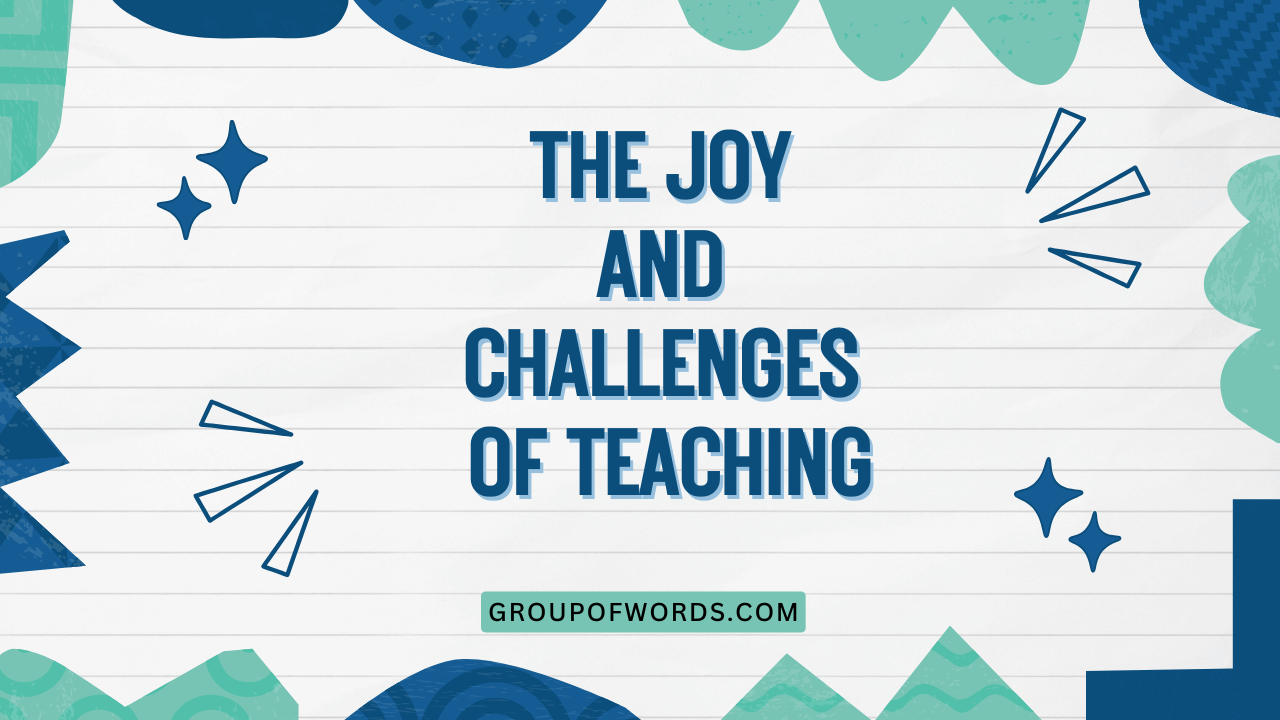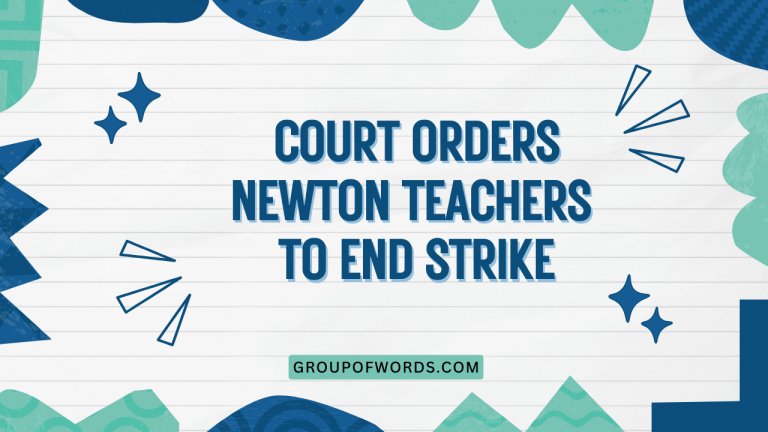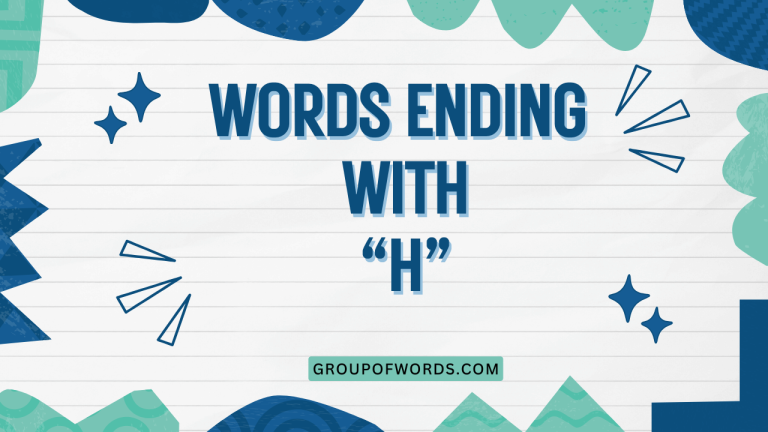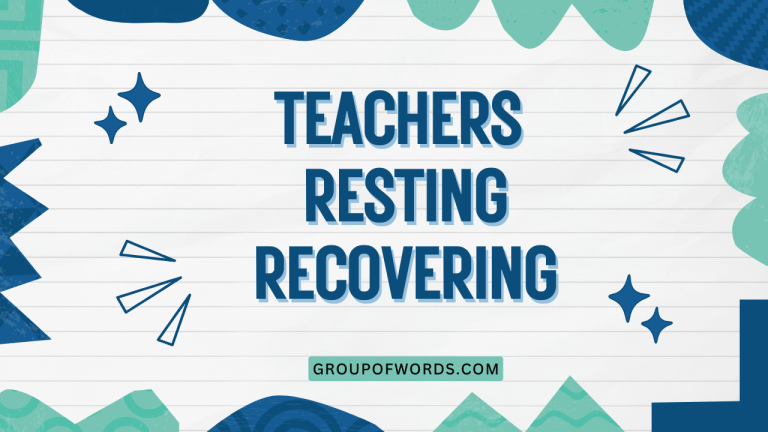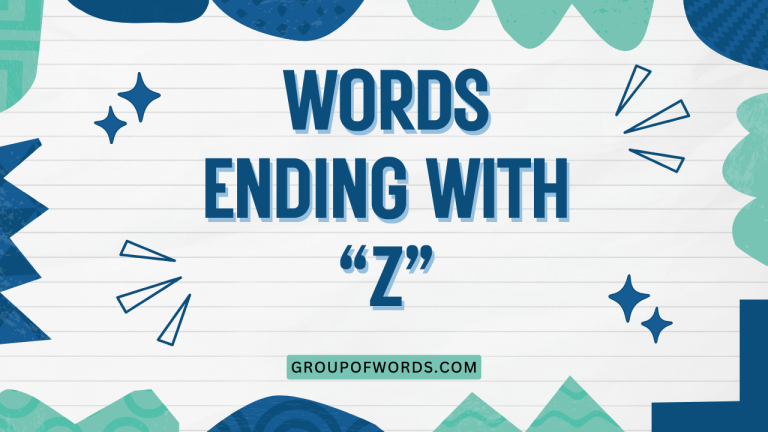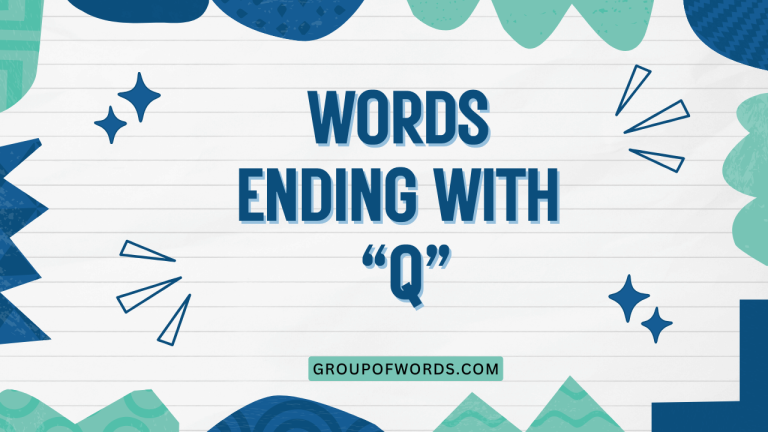The Gerund: Mastering Verbs as Nouns in English
Understanding gerunds is crucial for mastering English grammar. A gerund, a verb form ending in “-ing” that functions as a noun, allows for more versatile and sophisticated sentence construction.
This article provides a comprehensive guide to gerunds, covering their definition, structure, types, usage rules, common mistakes, and advanced topics. Whether you are a beginner or an advanced learner, this guide will equip you with the knowledge and practice needed to confidently use gerunds in your writing and speaking.
Table of Contents
- Definition of a Gerund
- Structural Breakdown of Gerunds
- Types and Categories of Gerunds
- Examples of Gerunds
- Usage Rules for Gerunds
- Common Mistakes with Gerunds
- Practice Exercises
- Advanced Topics
- Frequently Asked Questions
- Conclusion
Definition of a Gerund
A gerund is a verbal noun—a form derived from a verb but functioning as a noun. It always ends in “-ing.” The key to identifying a gerund is recognizing its noun-like role in a sentence.
It can act as a subject, object, complement, or object of a preposition.
Unlike present participles, which describe an ongoing action and function as adjectives or parts of a continuous verb tense, gerunds perform nominal functions. For example, in the sentence “Swimming is good exercise,” “swimming” is a gerund acting as the subject. In contrast, in “He is swimming,” “swimming” is a present participle forming part of the present continuous tense.
Gerunds can be modified by adjectives and adverbs, just like regular nouns. They can also take objects, creating gerund phrases that function as larger noun phrases.
Understanding this dual nature of gerunds—as both verbs and nouns—is critical to using them correctly.
Structural Breakdown of Gerunds
The basic structure of a gerund is the verb base + “-ing.” However, gerunds often appear as part of a larger phrase, known as a gerund phrase.
Gerund Phrase Structure: A gerund phrase includes the gerund itself plus any modifiers, objects, or complements. The entire phrase then functions as a noun.
Consider the sentence, “Reading novels is my favorite hobby.” Here, “reading” is the gerund, and “novels” is its object. The entire phrase “reading novels” functions as the subject of the sentence.
Gerund phrases can also include possessive pronouns or nouns before the gerund to indicate who is performing the action. For instance, “His singing annoyed everyone.” Here, “his” is a possessive pronoun modifying the gerund “singing.”
The ability to identify the components of a gerund phrase—the gerund, its modifiers, and its objects—is essential for understanding how gerunds function in sentences. Recognizing these structures allows for more complex and nuanced writing.
Types and Categories of Gerunds
Gerunds can be categorized based on their function within a sentence. The main categories are:
Gerund as Subject
The gerund acts as the subject of the sentence, performing the action of the verb.
Gerund as Object
The gerund acts as the direct or indirect object of the verb.
Gerund as Subject Complement
The gerund renames or describes the subject of the sentence after a linking verb.
Gerund as Object of a Preposition
The gerund follows a preposition and completes its meaning.
Understanding these categories helps in correctly placing and using gerunds in various sentence structures. Each category has specific implications for sentence construction and meaning.
Examples of Gerunds
To solidify your understanding of gerunds, let’s examine numerous examples categorized by their function in a sentence. These examples will illustrate how gerunds are used in different contexts and sentence structures.
Gerunds as Subjects
In these examples, the gerund or gerund phrase functions as the subject of the sentence.
| Sentence | Gerund/Gerund Phrase (Subject) |
|---|---|
| Swimming is excellent exercise. | Swimming |
| Reading is a great way to relax. | Reading |
| Writing helps me organize my thoughts. | Writing |
| Dancing is her passion. | Dancing |
| Singing makes me happy. | Singing |
| Cooking is a useful skill. | Cooking |
| Gardening is a therapeutic activity. | Gardening |
| Traveling broadens your perspective. | Traveling |
| Painting is a form of self-expression. | Painting |
| Hiking is a great way to explore nature. | Hiking |
| Eating healthy food is important for well-being. | Eating healthy food |
| Learning new languages is challenging but rewarding. | Learning new languages |
| Practicing the piano requires dedication. | Practicing the piano |
| Watching movies is a popular pastime. | Watching movies |
| Playing video games can be entertaining. | Playing video games |
| Taking photographs captures memories. | Taking photographs |
| Solving puzzles keeps your mind sharp. | Solving puzzles |
| Building model airplanes is a meticulous hobby. | Building model airplanes |
| Collecting stamps can be a fascinating endeavor. | Collecting stamps |
| Volunteering at the local shelter is a rewarding experience. | Volunteering at the local shelter |
| Teaching children to read is a noble profession. | Teaching children to read |
| Mentoring young adults can make a big difference. | Mentoring young adults |
| Organizing community events requires a lot of planning. | Organizing community events |
| Participating in sports promotes physical fitness. | Participating in sports |
| Attending workshops enhances professional skills. | Attending workshops |
Gerunds as Objects
In the following examples, the gerund or gerund phrase functions as the object of a verb.
| Sentence | Gerund/Gerund Phrase (Object) |
|---|---|
| I enjoy reading. | Reading |
| She loves dancing. | Dancing |
| He hates waiting. | Waiting |
| They prefer hiking. | Hiking |
| We avoid arguing. | Arguing |
| I appreciate your helping. | your helping |
| She suggested going to the movies. | going to the movies |
| He recommended visiting the museum. | visiting the museum |
| They considered moving to a new city. | moving to a new city |
| We finished cleaning the house. | cleaning the house |
| I dislike doing chores. | doing chores |
| She quit smoking cigarettes. | smoking cigarettes |
| He admitted cheating on the test. | cheating on the test |
| They postponed making a decision. | making a decision |
| We anticipate receiving good news. | receiving good news |
| I regret saying those words. | saying those words |
| She remembers meeting him years ago. | meeting him years ago |
| He denied stealing the money. | stealing the money |
| They practice playing their instruments. | playing their instruments |
| We imagine living in a tropical paradise. | living in a tropical paradise |
| I can’t help laughing at his jokes. | laughing at his jokes |
| She keeps forgetting her keys. | forgetting her keys |
| He minds working late. | working late |
| They risked losing everything. | losing everything |
| We tolerated her constant complaining. | her constant complaining |
Gerunds as Subject Complements
Here, the gerund or gerund phrase renames or describes the subject after a linking verb (e.g., is, are, was, were, seem, become).
| Sentence | Gerund/Gerund Phrase (Subject Complement) |
|---|---|
| My favorite activity is reading. | reading |
| Her hobby is dancing. | dancing |
| His job is teaching. | teaching |
| Their passion is hiking. | hiking |
| Our goal is winning. | winning |
| The hardest part is waking up early. | waking up early |
| One of my responsibilities is managing the budget. | managing the budget |
| His greatest pleasure is playing the guitar. | playing the guitar |
| Her main focus is improving her skills. | improving her skills |
| Their biggest challenge is meeting deadlines. | meeting deadlines |
| What I enjoy most is spending time with family. | spending time with family |
| What she loves is traveling to new places. | traveling to new places |
| What he hates most is doing household chores. | doing household chores |
| What they fear is losing their loved ones. | losing their loved ones |
| What we need is finding a reliable solution. | finding a reliable solution |
| The best way to learn is practicing consistently. | practicing consistently |
| The key to success is working hard. | working hard |
| The secret to happiness is appreciating the small things. | appreciating the small things |
| The purpose of education is expanding knowledge. | expanding knowledge |
| The aim of the project is achieving sustainable growth. | achieving sustainable growth |
| His greatest strength is solving complex problems. | solving complex problems |
| Her biggest weakness is procrastinating on tasks. | procrastinating on tasks |
| My favorite part of the day is watching the sunset. | watching the sunset |
| Their main concern is ensuring everyone’s safety. | ensuring everyone’s safety |
| Our primary objective is providing excellent service. | providing excellent service |
Gerunds as Objects of Prepositions
In these examples, the gerund or gerund phrase follows a preposition (e.g., of, in, for, on, at, by, about).
| Sentence | Gerund/Gerund Phrase (Object of Preposition) |
|---|---|
| I am good at cooking. | cooking |
| She is interested in dancing. | dancing |
| He is tired of waiting. | waiting |
| They are excited about hiking. | hiking |
| We are responsible for cleaning. | cleaning |
| She succeeded in finishing the project. | finishing the project |
| He is known for writing great stories. | writing great stories |
| They are dedicated to helping others. | helping others |
| We are committed to improving our skills. | improving our skills |
| I am looking forward to seeing you soon. | seeing you soon |
| She apologized for being late. | being late |
| He thanked us for giving him the opportunity. | giving him the opportunity |
| They blamed him for causing the accident. | causing the accident |
| We congratulated her on winning the award. | winning the award |
| I am thinking about starting a new hobby. | starting a new hobby |
| She is worried about failing the exam. | failing the exam |
| He is focused on achieving his goals. | achieving his goals |
| They are dependent on receiving financial support. | receiving financial support |
| We are grateful for having this opportunity. | having this opportunity |
| I am accustomed to working long hours. | working long hours |
| She is skilled at playing the piano. | playing the piano |
| He is proficient in speaking multiple languages. | speaking multiple languages |
| They are experienced in managing large projects. | managing large projects |
| We are knowledgeable about environmental issues. | environmental issues |
| I am interested in learning new technologies. | learning new technologies |
Usage Rules for Gerunds
Using gerunds correctly involves understanding specific rules and patterns. Here are some key rules to keep in mind:
- After Prepositions: Gerunds are commonly used after prepositions. For example: “He is good at playing the guitar.”
- After Certain Verbs: Some verbs are typically followed by gerunds rather than infinitives. Examples include: enjoy, avoid, consider, finish, mind, suggest, and recommend. For example: “I enjoy reading novels.”
- As Subjects and Complements: Gerunds can serve as the subject or subject complement of a sentence. For example: “Swimming is good exercise.” “His favorite hobby is reading.”
- Possessive Pronouns/Nouns: When a noun or pronoun precedes a gerund, it should generally be in the possessive form. For example: “I appreciated his helping me.” However, in informal contexts, the possessive is sometimes dropped, but it’s important to be aware of the more grammatically correct form.
Exceptions and Special Cases:
- “To” as a Preposition: When “to” is used as a preposition (e.g., “look forward to,” “be accustomed to”), it is followed by a gerund, not an infinitive. For example: “I am looking forward to seeing you.”
- Verbs Followed by Either Gerunds or Infinitives: Some verbs can be followed by either a gerund or an infinitive, but the meaning may change slightly. For example: “I remember meeting him” (recalling a past event) vs. “I remember to meet him” (remembering to do something in the future).
Common Mistakes with Gerunds
One common mistake is confusing gerunds with present participles. Remember that gerunds function as nouns, while present participles function as adjectives or parts of a continuous verb tense.
Another frequent error is using infinitives instead of gerunds after prepositions or verbs that require gerunds. For example, saying “I am good at to cook” is incorrect; the correct form is “I am good at cooking.”
Here’s a table illustrating common mistakes and their corrections:
| Incorrect | Correct | Explanation |
|---|---|---|
| I enjoy to read. | I enjoy reading. | “Enjoy” is followed by a gerund. |
| She is good at to dance. | She is good at dancing. | “At” is a preposition and requires a gerund. |
| His sing is beautiful. | His singing is beautiful. | “Singing” is the gerund form acting as a noun. |
| I am looking forward to meet you. | I am looking forward to meeting you. | “To” is a preposition in this context and requires a gerund. |
| He avoids to argue. | He avoids arguing. | “Avoid” is followed by a gerund. |
| I appreciate him to help me. | I appreciate his helping me. | Use possessive pronoun before the gerund. |
| Swimming is a good exercise, I like to swim too. | Swimming is a good exercise; I like to swim, too. | The first instance is a gerund (subject); the second is an infinitive (purpose). |
| She suggested to go to the movies. | She suggested going to the movies. | “Suggest” is followed by a gerund. |
| He recommended to visit the museum. | He recommended visiting the museum. | “Recommend” is followed by a gerund. |
| They considered to move to a new city. | They considered moving to a new city. | “Consider” is followed by a gerund. |
Practice Exercises
Test your understanding of gerunds with these practice exercises. Identify the gerunds and their function in each sentence.
Then, fill in the blanks with the correct gerund form of the verb in parentheses.
Exercise 1: Identifying Gerunds
Identify the gerund or gerund phrase in each sentence and state its function (subject, object, subject complement, object of preposition).
| Question | Answer |
|---|---|
| 1. Reading is my favorite pastime. | Reading (Subject) |
| 2. She enjoys dancing. | Dancing (Object) |
| 3. His job is teaching. | Teaching (Subject Complement) |
| 4. He is good at playing the guitar. | Playing the guitar (Object of Preposition) |
| 5. Swimming in the ocean is exhilarating. | Swimming in the ocean (Subject) |
| 6. I appreciate your helping me. | Your helping me (Object) |
| 7. She is tired of waiting. | Waiting (Object of Preposition) |
| 8. Learning new languages is challenging. | Learning new languages (Subject) |
| 9. His passion is solving puzzles. | Solving puzzles (Subject Complement) |
| 10. They are excited about traveling. | Traveling (Object of Preposition) |
Exercise 2: Fill in the Blanks
Fill in the blanks with the gerund form of the verb in parentheses.
| Question | Answer |
|---|---|
| 1. I enjoy ________ (read) novels. | reading |
| 2. She is good at ________ (dance). | dancing |
| 3. He avoids ________ (argue) with his colleagues. | arguing |
| 4. They are considering ________ (move) to a new city. | moving |
| 5. We finished ________ (clean) the house. | cleaning |
| 6. I am looking forward to ________ (see) you soon. | seeing |
| 7. She apologized for ________ (be) late. | being |
| 8. He is interested in ________ (learn) new languages. | learning |
| 9. They are dedicated to ________ (help) others. | helping |
| 10. We are committed to ________ (improve) our skills. | improving |
Exercise 3: Sentence Transformation
Rewrite the following sentences using a gerund phrase.
| Question | Answer |
|---|---|
| 1. It is important to exercise regularly. | Exercising regularly is important. |
| 2. She likes to paint landscapes. | She enjoys painting landscapes. |
| 3. He needs to practice playing the piano. | He needs to practice playing the piano. |
| 4. They want to travel around the world. | They dream of traveling around the world. |
| 5. It is fun to solve puzzles. | Solving puzzles is fun. |
| 6. She is skilled at playing the guitar. | She has a knack for playing the guitar. |
| 7. He is interested in learning new languages. | He has an interest in learning new languages. |
| 8. They are excited about going on vacation. | They anticipate going on vacation. |
| 9. We are responsible for maintaining the garden. | We are in charge of maintaining the garden. |
| 10. I am thinking about starting a new hobby. | I have been considering starting a new hobby. |
Advanced Topics
For advanced learners, it’s important to understand the nuances of gerund usage in more complex sentence structures. This includes understanding reduced gerund clauses and the use of gerunds in academic writing.
Reduced Gerund Clauses: These are clauses where the subject of the gerund is omitted when it is understood from the context. For example, “Having finished the work, I went home” (the implied subject is “I”).
Gerunds in Academic Writing: In formal writing, gerunds are often used to express generalizations or abstract concepts. For example, “Investing in education is crucial for economic development.”
Furthermore, understanding the subtle differences between gerunds and infinitives in specific contexts can elevate your writing. For instance, knowing when to use a gerund after verbs like “stop,” “remember,” or “forget” requires careful attention to meaning.
Frequently Asked Questions
Here are some frequently asked questions about gerunds:
- What is the difference between a gerund and a present participle?
A gerund functions as a noun, while a present participle functions as an adjective or part of a continuous verb tense. For example, “Swimming is good exercise” (gerund) vs. “He is swimming” (present participle).
- When should I use a gerund after a preposition?
Always use a gerund after a preposition. For example, “She is good at dancing.”
- Are there verbs that are always followed by gerunds?
Yes, certain verbs like enjoy, avoid, consider, finish, mind, suggest, and recommend are typically followed by gerunds.
- What is a gerund phrase?
A gerund phrase includes the gerund itself plus any modifiers, objects, or complements. The entire phrase functions as a noun. For example, “Reading novels is my favorite hobby.”
- How do I use possessive pronouns or nouns with gerunds?
When a noun or pronoun precedes a gerund, it should generally be in the possessive form. For example: “I appreciated his helping me.”
- Can a gerund be the subject of a sentence?
Yes, a gerund can act as the subject of a sentence. For example, “Swimming is excellent exercise.”
- What happens if I use an infinitive instead of a gerund after a preposition?
Using an infinitive after a preposition is grammatically incorrect. Always use a gerund in this case. For instance, “I am good at to cook” is wrong; the correct form is “I am good at cooking.”
- Are there any exceptions to the gerund rules?
Yes, there are a few exceptions. For instance, when “to” is used as part of an infinitive, it’s not followed by a gerund. However, when “to” is a preposition (e.g., “look forward to”), it is followed by a gerund.
Conclusion
Mastering gerunds is essential for developing fluency and precision in English. By understanding their definition, structure, types, usage rules, and common mistakes, you can confidently incorporate gerunds into your writing and speaking.
Remember to practice regularly and pay attention to the context in which gerunds are used.
Continue to explore advanced topics and nuances to further refine your understanding. With consistent effort and attention to detail, you will become proficient in using gerunds to express complex ideas and enhance your overall communication skills.
Embrace the versatility that gerunds offer and enjoy the enhanced clarity and sophistication they bring to your language.
